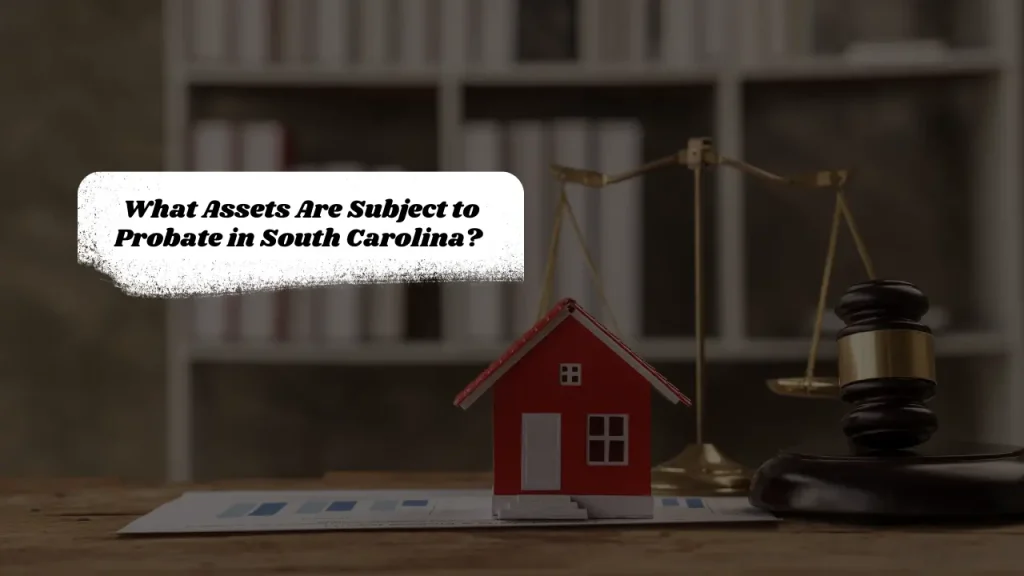What Assets Are Subject to Probate in South Carolina?
Did you know that 1 in 3 South Carolinians will face probate court after a loved one’s passing? With its sprawling beaches, historic Charleston homes, and family farms in the Upstate, South Carolina’s unique assets require careful estate planning. But if you’re unsure which assets must go through probate—or how to avoid it—you’re not alone. This guide breaks down everything you need to know, from Myrtle Beach vacation homes to digital cryptocurrency wallets. Let’s dive in.
Table of Contents
What Is Probate, and How Does It Work in South Carolina?
Probate is the legal process of validating a will, settling debts, and distributing assets after someone dies. In South Carolina, this process is managed by the Probate Court in the deceased’s county of residence. If there’s no will, state law (S.C. Code § 62-2-101) determines inheritance through intestate succession.
Why It Matters:
- Probate can take 6–18 months in South Carolina, depending on the estate’s complexity.
- Court fees, attorney costs, and appraisal fees can eat up 3–8% of the estate’s value.
- Without a plan, your family might lose cherished assets like a Hilton Head Island condo or heirloom jewelry.
Assets That Always Go Through Probate in South Carolina
Not all assets are treated equally. Here’s what typically requires probate:
1. Solely Owned Property
Any asset titled only in the deceased’s name must go through probate. This includes:
- Real Estate: A Charleston single-family home, Upstate farmland, or a Lake Murray cabin.
- Financial Accounts: Checking/savings accounts without a Payable-on-Death (POD) beneficiary.
- Vehicles: Cars, boats, or RVs registered solely to the deceased.
- Personal Belongings: Jewelry, art, furniture, and collectibles.
Example: If your aunt owned a Columbia condo in her name alone, her heirs must wait for probate to claim it.
2. Assets Without Updated Beneficiaries
- Life Insurance Policies or Retirement Accounts (IRAs, 401(k)s) if the beneficiary is deceased, invalid, or unspecified.
- Brokerage Accounts lacking a Transfer-on-Death (TOD) designation.
3. Intestate Assets (No Will)
If someone dies without a will, all their assets go through probate. South Carolina’s intestate laws prioritize spouses, children, and parents.
4. Digital Assets Without a Plan
- Cryptocurrency (e.g., Bitcoin wallets) without a designated heir.
- Social Media Accounts or online businesses left unaddressed in an estate plan.
Key Takeaway: Without clear titles or beneficiary designations, even digital assets like a profitable Etsy shop could end up in probate limbo.
Related article for you:
Who Owns a Property During Probate in South Carolina?

Assets That Skip Probate in South Carolina
Smart planning can protect your family from probate hassles. These assets bypass the process:
1. Jointly Owned Property with Rights of Survivorship
- Real Estate: A Myrtle Beach home co-owned by spouses automatically transfers to the survivor.
- Bank Accounts: Joint accounts with a surviving owner.
Watch Out: Tenancy in Common (TIC) assets do go through probate—only the deceased’s share.
2. Assets with Beneficiary Designations
- Life Insurance Policies
- Retirement Accounts (e.g., “I name my daughter as IRA beneficiary”)
- POD/TOD Accounts: Banks or brokerages transfer funds directly to beneficiaries.
3. Trust Assets
Assets held in a revocable living trust avoid probate entirely. Popular for vacation homes or rental properties.
4. Small Estates
South Carolina offers a simplified probate process for estates valued under $25,000 (S.C. Code § 62-3-1201). No court appearances required!
South Carolina-Specific Probate Insights You Can’t Afford to Miss
1. The Homestead Exemption
Your primary residence is protected from creditors during probate. Up to $69,680 (adjusted for inflation) of your home’s equity is shielded (S.C. Code § 15-41-30).
2. Medicaid Estate Recovery
If the deceased received Medicaid after age 55, the state can claim reimbursement from probate assets—including a Greenville family home.
3. Probate Costs and Timelines
- Average Cost: 3–8% of the estate’s value (e.g. 9,000–24,000 for a $300k estate).
- Timeline: 6–12 months for simple estates; 18+ months for disputes or complex assets.
4. Executor Responsibilities
The personal representative (executor) must:
- Notify creditors and pay valid debts.
- File tax returns.
- Distribute assets per the will or intestate laws.
How to Avoid Probate in South Carolina: 5 Pro Tips
- Create a Living Trust: Transfer titles to the trust (ideal for Beaufort County vacation homes).
- Update Beneficiaries: Double-check life insurance policies and retirement accounts.
- Use Joint Ownership Wisely: Opt for rights of survivorship—not tenancy in common.
- Benefit from Small Estate Procedures: For estates under $25k, use S.C. Code § 62-3-1201.
- Gift Assets Early: Reduce your probate footprint by gifting heirlooms or cash.
Common Probate Mistakes to Avoid
- Forgetting Digital Assets: No plan for crypto? It’s stuck in probate.
- Ignoring Medicaid Recovery: The state can claim your parent’s Spartanburg home.
- Mishandling Joint Accounts: Adding a child to your bank account could expose them to creditors.
Need Help? Key Resources for South Carolina Residents
- South Carolina Probate Courts Directory: sccourts.org
- Free Will Templates: SC Bar Association
- Medicaid Recovery Rules: SCDHHS.gov
- Estate Planning Attorneys: Search the SC Supreme Court Directory.
Final Thoughts
Understanding probate in South Carolina isn’t just about legal codes—it’s about protecting your family’s legacy. Whether it’s a Charleston row house, a Bitcoin portfolio, or Grandma’s antique ring, proactive planning ensures your loved ones avoid unnecessary stress.
“The best time to plan your estate was yesterday. The second-best time is today.”
Disclaimer: This article is for informational purposes only. Consult a South Carolina-licensed estate planning attorney for advice tailored to your situation.
About the Author

Sarah Klein, JD, is an experienced estate planning attorney who has helped clients with wills, trusts, powers of attorney, and probate matters. At All About Lawyer, she simplifies complex estate laws so families can protect their assets, plan ahead, and avoid legal headaches during life’s most sensitive moments.
Read more about Sarah
